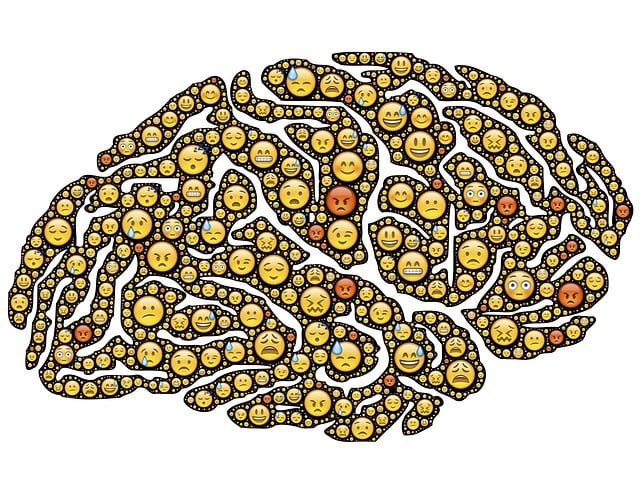Evaluating Denver Alcohol Abuse Therapy (DAAT) requires a multi-faceted approach combining quantitative and qualitative methods. This includes analyzing participation rates, therapeutic assignment completion, and changes in depression prevention strategies (quantitative), alongside interviews and focus groups to capture clients' subjective experiences (qualitative). Long-term tracking is vital for assessing the sustainability of positive outcomes. By integrating these techniques, DAAT can ensure it fosters personal growth while also bringing broader societal benefits, catering to diverse community needs.
Evaluating mental wellness programs is crucial for understanding their impact and ensuring effectiveness. This article explores various evaluation methods, from quantitative metrics and surveys to qualitative interviews and focus groups, specifically focusing on the success of Denver Alcohol Abuse Therapy initiatives. We delve into how these approaches help assess program impact, measure long-term sustainability, and uncover client experiences, ultimately guiding improvements in mental healthcare services.
- Understanding Program Impact: Assessment Tools for Mental Wellness Initiatives
- Quantitative Analysis: Metrics and Surveys for Evaluating Denver Alcohol Abuse Therapy Effectiveness
- Qualitative Insights: Interviews and Focus Groups to Uncover Client Experiences
- Long-term Tracking: Measuring Sustainability and Post-program Wellbeing
Understanding Program Impact: Assessment Tools for Mental Wellness Initiatives

Evaluating the impact of mental wellness programs is a crucial step in understanding their effectiveness and ensuring they meet the needs of the community. Assessment tools play a vital role in gauging the success of initiatives aimed at addressing issues like Denver Alcohol Abuse Therapy. These tools can range from surveys and interviews to more complex measurement frameworks, all designed to capture the intricate nature of mental wellness.
One effective approach involves assessing both individual and community levels. For instance, measuring changes in participants’ emotional healing processes through structured interviews or self-reported questionnaires can provide insights into personal growth. Simultaneously, evaluating the program’s impact on conflict resolution techniques within communities highlights its broader societal benefits. Additionally, examining the implementation of community outreach programs enables a comprehensive understanding of how initiatives reach and support diverse populations.
Quantitative Analysis: Metrics and Surveys for Evaluating Denver Alcohol Abuse Therapy Effectiveness

Evaluating the effectiveness of Denver Alcohol Abuse Therapy requires a robust quantitative analysis framework. Metrics play a crucial role in measuring progress and success rates, providing tangible data on client outcomes. Surveys, designed to capture subjective experiences, offer insights into clients’ perceptions of their therapy journey. These tools are essential for understanding the impact of treatment interventions.
In the context of Denver Alcohol Abuse Therapy, assessing inner strength development and applying mind over matter principles can be quantifiable. Metrics may include tracking participation rates in group sessions, completion of therapeutic assignments, and changes in depression prevention strategies. Surveys could explore clients’ self-reported improvements in coping mechanisms, stress management, and overall mental wellness, revealing the depth of their transformation.
Qualitative Insights: Interviews and Focus Groups to Uncover Client Experiences

Qualitative insights play a pivotal role in evaluating mental wellness programs, offering a deep dive into clients’ experiences and perspectives. Techniques such as interviews and focus groups provide a safe space for individuals to share their journeys, challenges, and triumphs related to issues like Denver Alcohol Abuse Therapy. Through open-ended questions, participants can describe the impact of various stress reduction methods, emotional healing processes, and empathy building strategies employed within the program.
These interactions reveal nuanced insights into the client’s relationship with their therapists, the therapeutic environment, and the overall effectiveness of the treatment. The feedback gathered helps in identifying areas of strength and weakness within the program, guiding necessary adjustments to better cater to individual needs. By prioritizing empathy and active listening, mental wellness programs can foster a supportive atmosphere that encourages honest reflections, ultimately enhancing the overall healing experience.
Long-term Tracking: Measuring Sustainability and Post-program Wellbeing

Long-term tracking plays a vital role in evaluating mental wellness programs, as it allows for the measurement of sustainability and post-program wellbeing. By implementing robust tracking mechanisms, therapists and healthcare professionals can assess whether the positive outcomes observed during or immediately after the program persist over time. This is crucial in Denver Alcohol Abuse Therapy, where understanding long-term recovery rates provides valuable insights into the effectiveness of interventions.
Regular follow-ups with participants enable the identification of potential setbacks and areas for improvement. Moreover, it facilitates the development of tailored self-care routines (Self-Care Routine Development for Better Mental Health) and promotes the adoption of beneficial Self-Care Practices. This holistic approach not only enhances mental health but also boosts confidence, a key factor in maintaining long-term wellness.
Evaluating mental wellness programs is a multifaceted process, as demonstrated by our exploration of understanding program impact through various assessment tools. For initiatives like Denver Alcohol Abuse Therapy, combining quantitative metrics and surveys with qualitative interviews and focus groups offers a comprehensive view of effectiveness. Long-term tracking ensures sustainability and post-program wellbeing, providing crucial insights for continuous improvement in mental health support. By leveraging these evaluation methods, we can enhance the impact and reach of such programs, fostering healthier communities.













